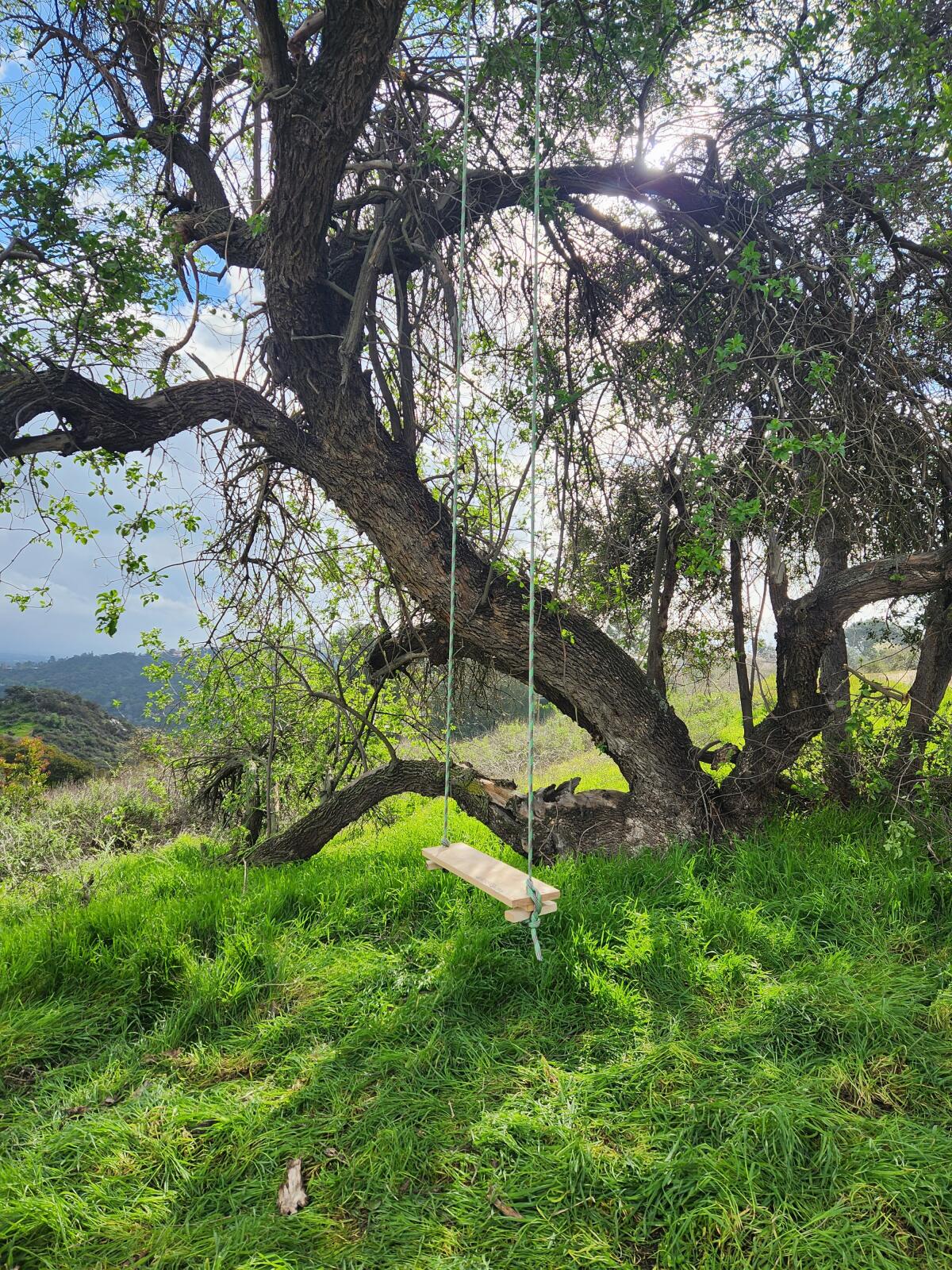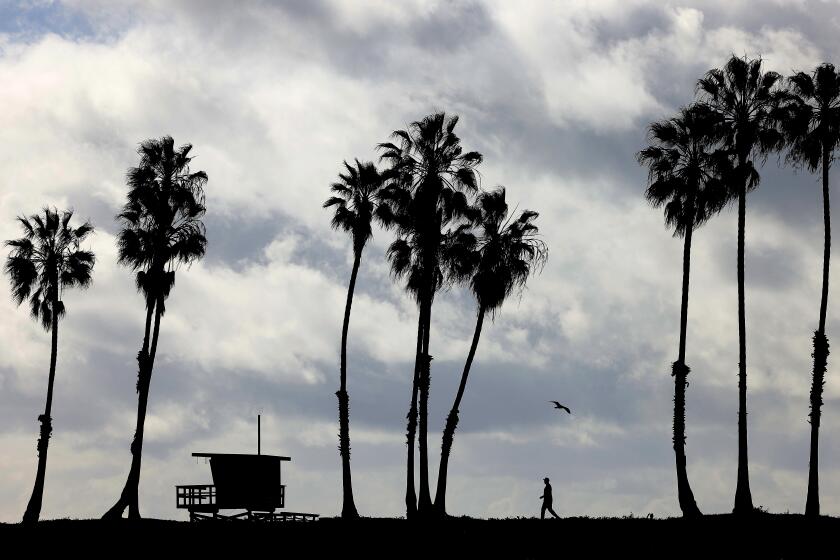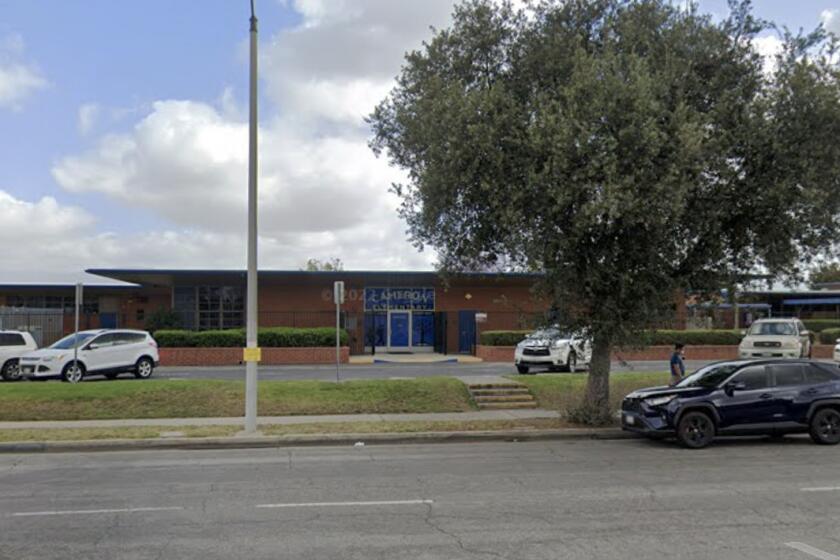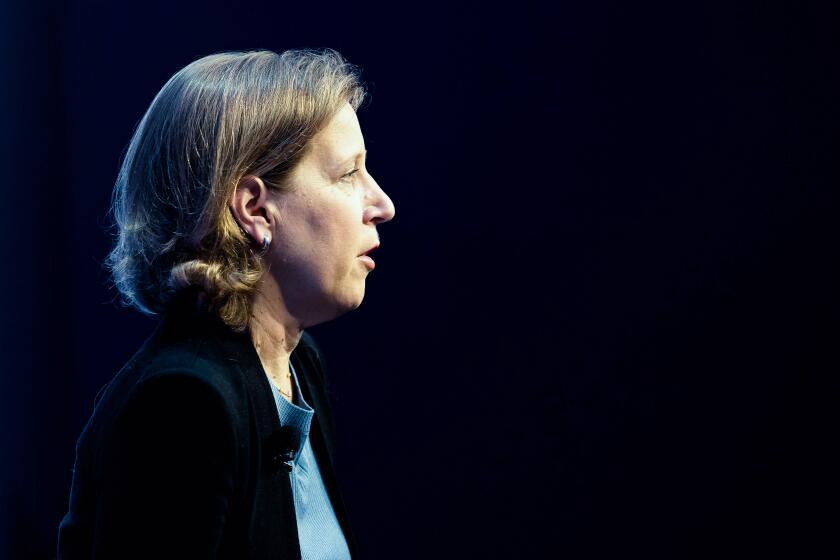Why your restaurant bill could soon look different in California
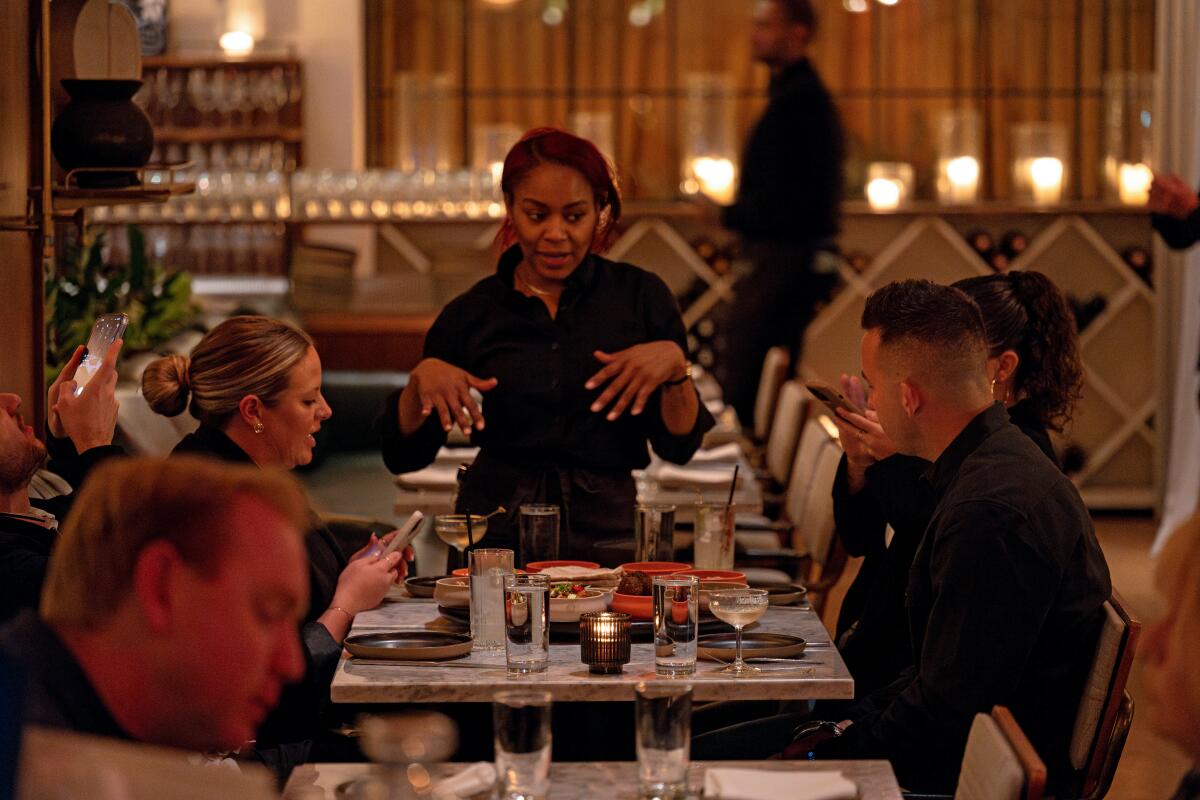
Good morning. It’s Friday, Feb. 16. Here’s what you need to know to start your day.
- Your restaurant bill could look different soon
- Will the LAPD’s next chief come from its ranks or be an outsider? Mayor Bass has to decide that.
- Korean bookstores in L.A. are dying. Here’s how one survives.
- And here’s today’s e-newspaper
Start your day right
Sign up for Essential California for news, features and recommendations from the L.A. Times and beyond in your inbox six days a week.
You may occasionally receive promotional content from the Los Angeles Times.
Your restaurant bill could look different soon
If you enjoy dining out or ordering in from restaurants, you’ll notice some changes to your bills later this year.
This summer, restaurants and bars cannot tack on unadvertised service fees and other additional charges to the check after your meal.
That’s because Gov. Gavin Newsom signed Senate Bill 478, which takes effect July 1. The new law aims to prohibit “junk fees” across an array of industries and will also apply to delivery apps, online ticket sales and hotels.
The law was co-sponsored by Atty. Gen. Rob Bonta, who previously said the “deceptive fees … are bad for consumers and bad for competition.”
As Times food reporter Stephanie Breijo notes, people have an array of opinions about those service fees, but restaurateurs she spoke with consider them vital to providing workers with benefits and financial stability in a largely volatile industry.
“Many owners of restaurants and bars rely on now-ubiquitous surcharges to offer employee benefits such as healthcare and higher wages and often note surcharges on menus,” Stephanie wrote this week. “Some are listed as ‘elective,’ left to the discretion of the diner.”
With the new rules less than five months away, restaurant owners and advocates she spoke to voiced concerns that the changes could “upend” the industry — especially as restaurants in the state contend with lingering pandemic effects, increasing labor costs, high taxes and strict regulations, all while operating on razor-thin margins.
What can diners expect?
Basically, the total on your bill won’t necessarily go down — but you will know what you’re paying for. Service charges can still exist, but must be explicitly displayed in menu prices rather than being added at the end as a percentage of the total price, Bonta’s office said.
The result, as Stephanie explained, could be sticker shock “when a $35 menu item in theory could now be listed at $42.”
But many restaurants will want to continue to pay workers the wages and benefits made possible through those surcharges.
“Rolling surcharges or fees of 1% to 20% or more into menu pricing could also trigger other business costs,” she noted.
A lot of that depends on whether restaurants automatically add charges or leave that choice to diners.
When a diner voluntarily decides to pay the surcharge, it is not taxable. When the surcharge is added to the price of menu items, it becomes taxable income for the business, Stephanie explained, citing the California Restaurant Assn.
Restaurants brace for impact
How customers respond to those price increases could determine the fate of many businesses across the Golden State.
Although signed bills typically become state law Jan. 1, these new restaurant rules were delayed to give businesses more time to prepare for implementation. But many restaurant owners are still unclear on compliance and frustrated by the state’s communication so far.
”It’s not going to drop the price of dining out,” Laurie Thomas, executive director of the Golden Gate Restaurant Assn., told Stephanie. “What it might do is close more restaurants. But maybe people don’t care about that anymore.”
The law also bars the increasingly common 18% service charge added for dining parties of six or more. James Beard Award-winning restaurateur Caroline Styne told Stephanie that would be unfair because larger parties require more labor.
“There are a lot of businesses that will be upended by this,” she said.
You can read more from Stephanie on the new law and how it could affect delivery app ordering this summer.
Today’s top stories
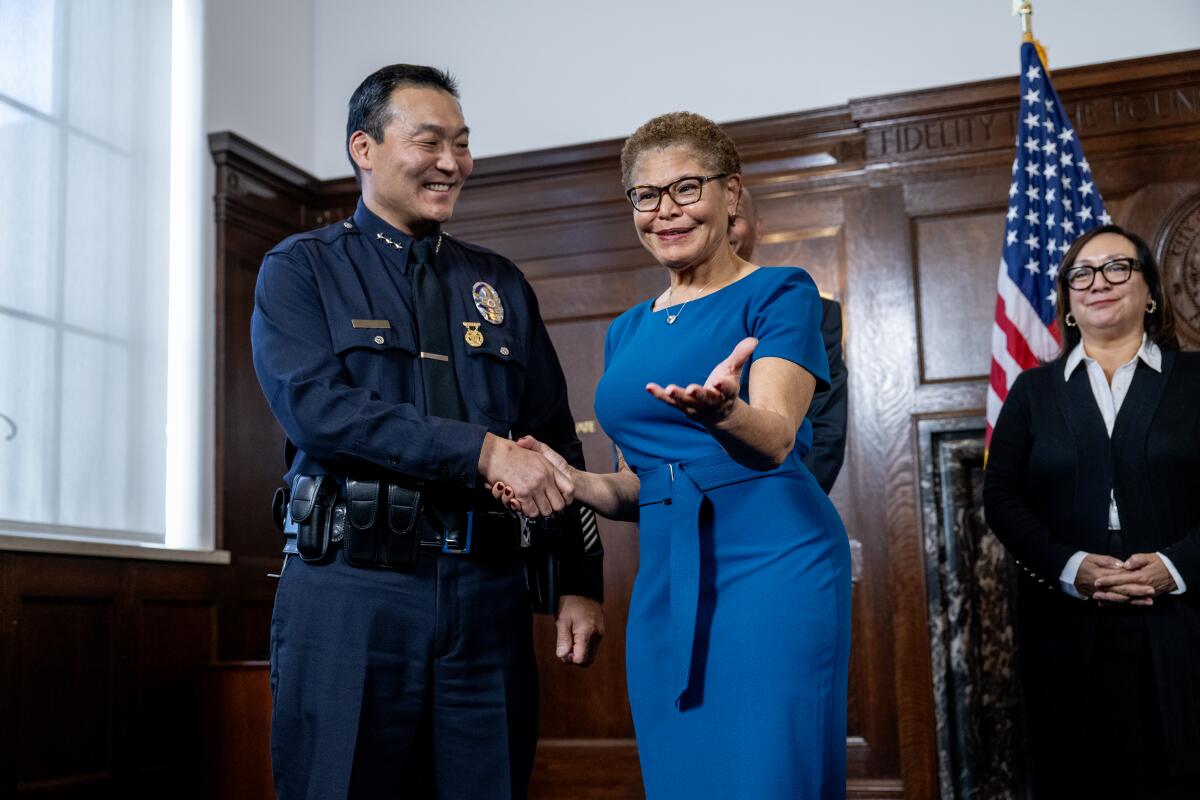
Politics
- Mayor Bass faces choice for next LAPD chief: Hire from within or bring in an outsider.
- Will moving to the middle on immigration deliver electoral success to Democrats in 2024?
- In the crowded race for D.A., who can break out of the pack to challenge George Gascón?
Rebecca Grossman trial
- The defense in Rebecca Grossman’s murder trial keeps ex-Dodger Scott Erickson the center of attention.
- Ex-MLB player Royce Clayton, caught up in Rebecca Grossman’s murder trial, was arrested on suspicion of DUI.
- Defense hammers at portrayal of Rebecca Grossman as reckless and impaired.
More big stories
- With fake blood and screams, Gaza cease-fire protests are disrupting tiny Ojai.
- Putin foe Alexei Navalny dies in prison, Russian authorities say.
- A major auto insurer returns to California — with a 30% price hike.
- After a stunted strike, CSU faculty union shows signs of division as it votes on a contract.
- Mayor Karen Bass’ plan for rebuilding the size of the LAPD has fallen short so far.
- Can California pull off the epic transition to EVs? Read our coverage here.
- Record rain saturates SoCal landscape, heightening fears of more landslides.
- Six hikers were airlifted off Mt. Baldy days after the remains of a missing 22-year-old were found.
Get unlimited access to the Los Angeles Times. Subscribe here.
Commentary and opinions
- LZ Granderson: Will the Chiefs parade shooting inspire enough Republican voters to make a change?
- Opinion: Single mothers like me are easy scapegoats. But the case for marriage is a myth.
- Michael Hiltzik: Who’s really winning in Sarah Silverman’s copyright suit against OpenAI?
- Opinion: Is your cat bad? The problem is likely not with Fluffy — it could be you.
- Anita Chabria: For this lawyer and Assembly candidate, ‘save the children’ isn’t a hashtag.
- Editorial: Applying for financial aid to college shouldn’t be this torturous.
- Opinion: Troubled youth? Contrary to stereotypes, much of Gen Z is doing just fine.
- Dylan Hernández: Shohei Ohtani’s personality will help him fit into Dodgers’ clubhouse.
Today’s great reads
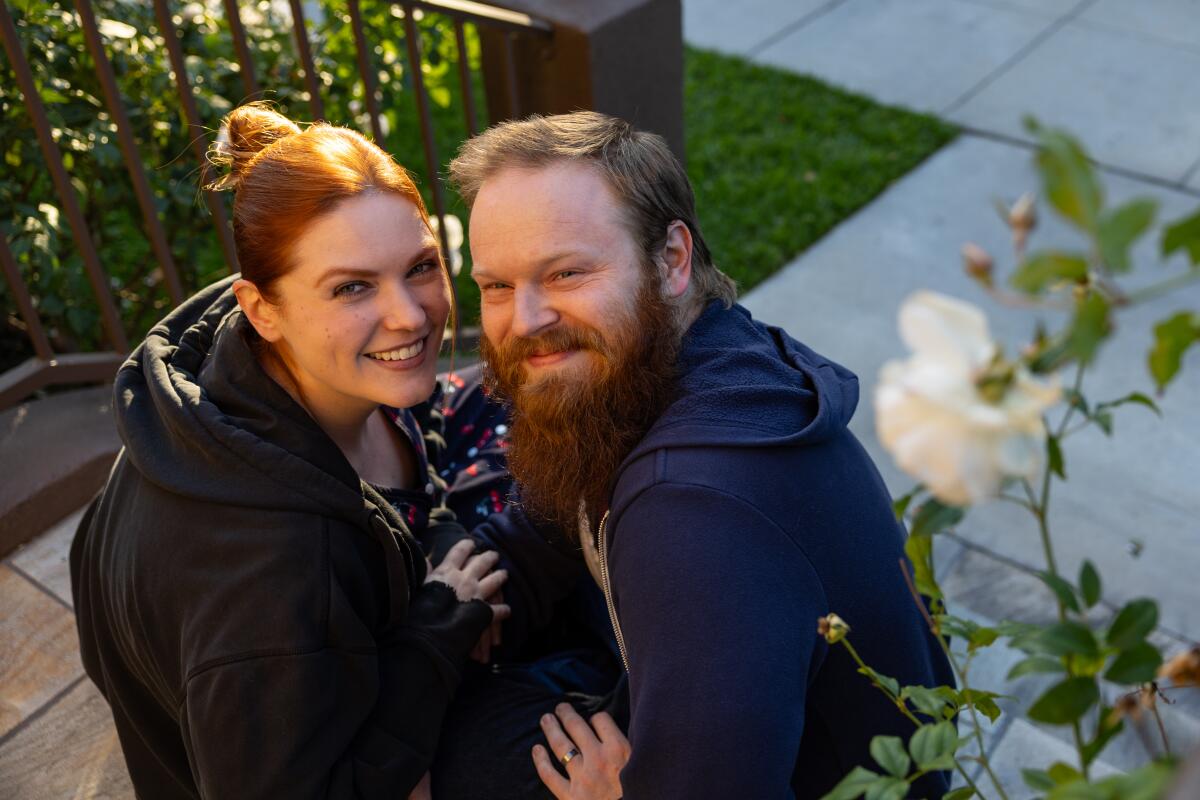
They earn nearly $200,000. Can they afford to have kids in SoCal? Birthrates have been trending downward in the U.S. for several decades and dropped precipitously during the pandemic. A key reason is the high cost of raising kids.
Other great reads
- ‘Welcome Home, Franklin’ tells the backstory of the first Black ‘Peanuts’ character.
- Korean bookstores in L.A. are dying. Here’s how one survives.
- These never-before-seen photos of Björk at Chateau Marmont are giving otherworldly glee.
How can we make this newsletter more useful? Send comments to essentialcalifornia@latimes.com.
For your downtime
Going out
- 🥾Wheee! Here are 15 SoCal hiking trails with hidden tree swings.
- 😝 A slime museum is coming to L.A. — and it’s bringing the healing power of play.
- 🎤 Jennifer Lopez unveils This Is Me ... Now tour: Here’s when Jenny stops by our block.
Staying in
- 💿 Shakira unveils ‘Las Mujeres Ya No Lloran,’ her first album in seven years.
- 📺 In ‘The Vince Staples Show,’ — now on Netflix — things go unpredictably haywire, in the best possible way.
- 🥪 Here’s a recipe for a California veggie sandwich.
- ✏️ Get our free daily crossword puzzle, sudoku, word search and arcade games.
And finally ... a great photo
Show us your favorite place in California! Send us photos you have taken of spots in California that are special — natural or human-made — and tell us why they’re important to you.
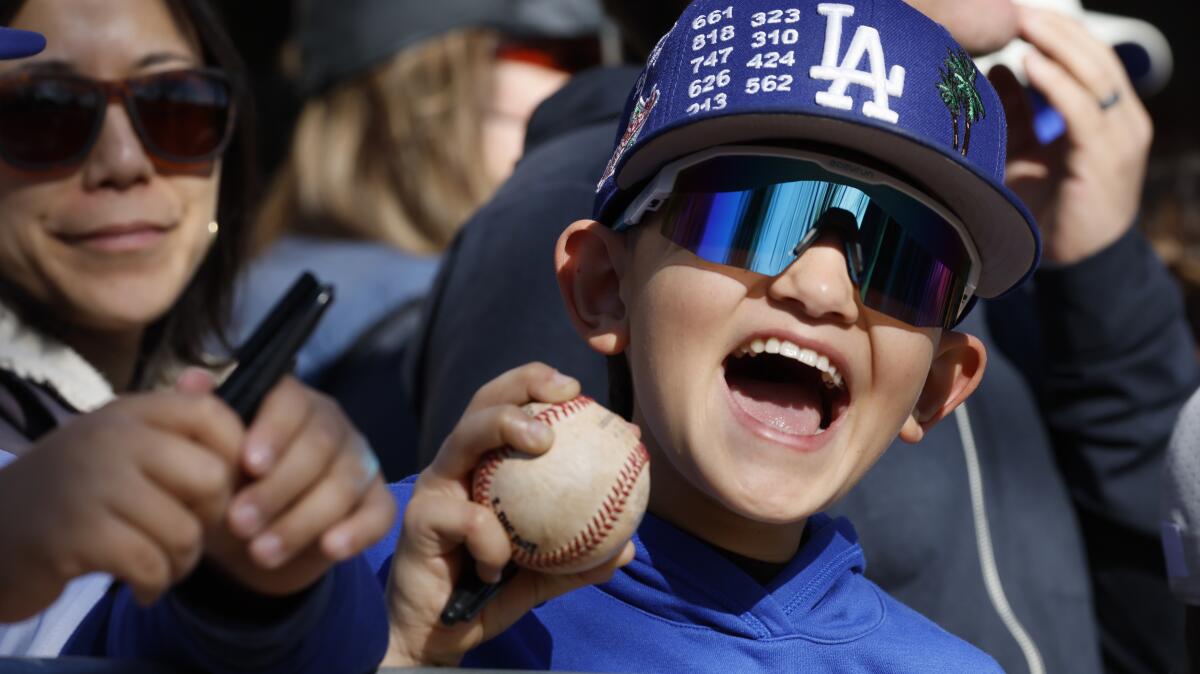
Today’s great photo is from Times photographer Robert Gauthier. Pictured is 10-year-old Christian Bujand who is hoping for an autograph from Shohei Ohtani as the Dodgers spring training gets into full swing.
Have a great day, from the Essential California team
Ryan Fonseca, reporter
Kevinisha Walker, multiplatform editor
Stephanie Chavez, deputy metro editor
Check our top stories, topics and the latest articles on latimes.com.
Start your day right
Sign up for Essential California for news, features and recommendations from the L.A. Times and beyond in your inbox six days a week.
You may occasionally receive promotional content from the Los Angeles Times.
